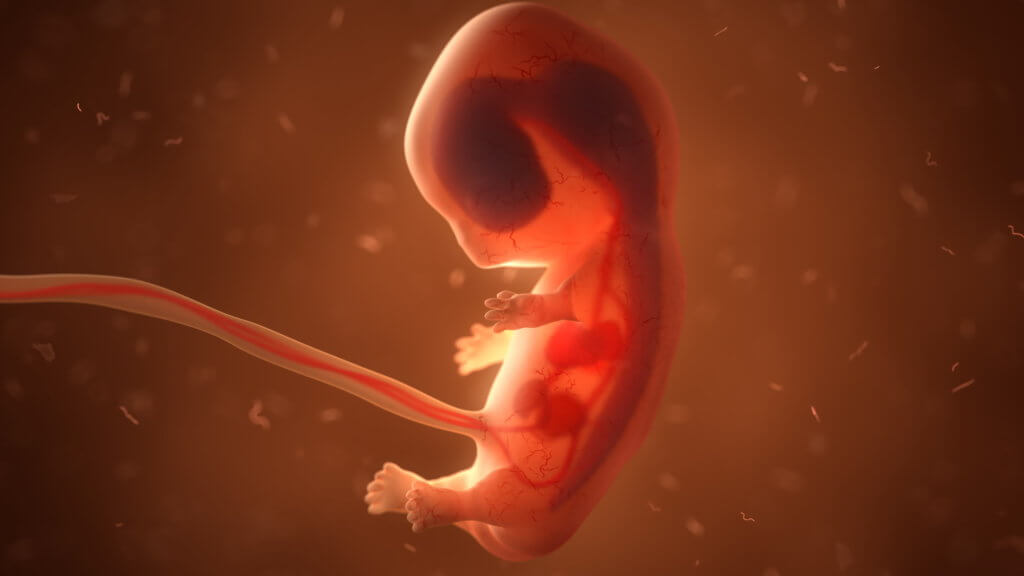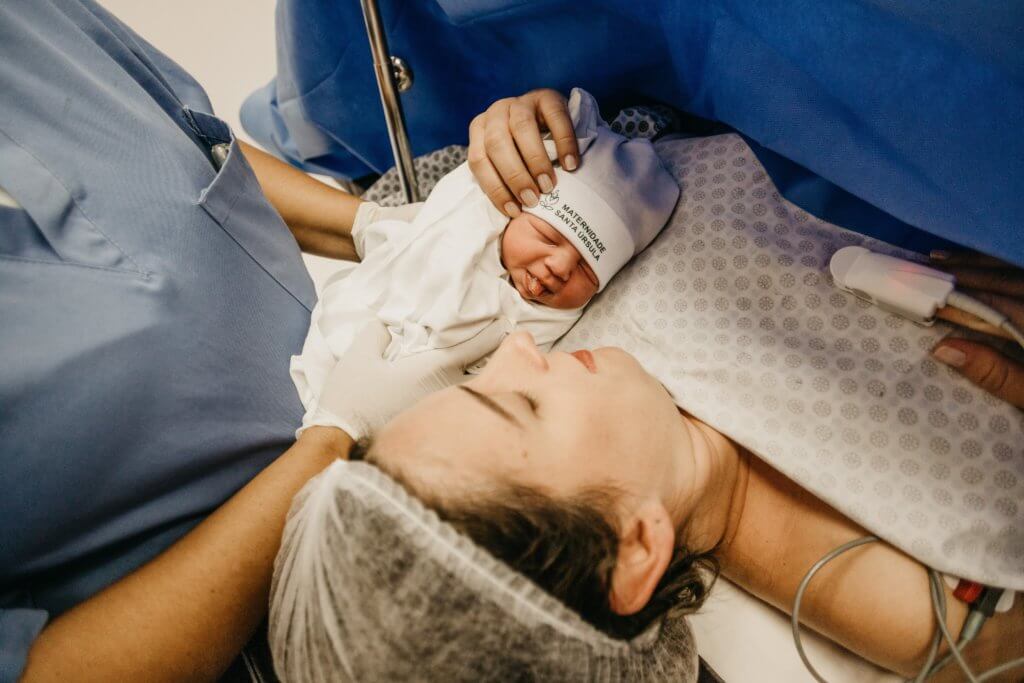CAMBRIDGE, United Kingdom — Pregnant women may want to “thank” their partner’s genes for all those cravings they get while carrying a child. A new study finds that that fetuses use a “greedy” gene inherited from their fathers to manipulate their mothers into providing them with more nutrients while in the womb.
Scientists from the University of Cambridge suggest that the unborn baby manages its mother’s metabolism, creating a nutritional “tug of war” during pregnancy. While the mother’s body seeks to maintain enough glucose and fats for her own health, the baby uses this paternal gene to maximize the nutrients it receives from the mother. This tug of war aids the mother in sustaining her health for childbirth, breastfeeding, and possible future pregnancies.
The study, published in the journal Cell Metabolism, explores how the placenta communicates with the mother to adjust to the baby’s growth. The placenta, an essential organ, develops alongside the fetus in pregnant mammals to support the fetus’s development.

In experiments conducted on pregnant mice, the researchers selectively changed the signaling cells in the placenta that direct the mother’s nutrient allocation to her developing offspring.
“It’s the first direct evidence that a gene inherited from the father is signaling to the mother to divert nutrients to the fetus,” says co-senior author Professor Amanda Sferruzzi-Perri, a Fellow of St John’s College, in a media release.
“The baby’s remote control system is operated by genes that can be switched on or off depending on whether they are a ‘dad’s’ or ‘mum’s’ gene’, the so-called imprinted genes,” adds Dr. Miguel Constancia, an MRC Investigator based at the Wellcome-MRC Institute of Metabolic Science and co-senior author of the paper.
“Genes controlled by the father are ‘greedy’ and ‘selfish’ and will tend to manipulate maternal resources for the benefit of the fetuses, so to grow them big and fittest. Although pregnancy is largely cooperative, there is a big arena for potential conflict between the mother and the baby, with imprinted genes and the placenta thought to play key roles.”
The researchers further explain that a father’s genes tend to promote fetal growth, while a mother’s genes often limit it.
“Those genes from the mother that limit fetal growth are thought to be a mother’s way of ensuring her survival, so she doesn’t have a baby that takes all the nutrients and is too big and challenging to birth. The mother also has a chance of having subsequent pregnancies potentially with different males in the future to pass on her genes more widely,” Prof. Sferruzzi-Perri explains.

The Cambridge team studied the expression of an essential imprinted gene known as Igf2, which codes for a protein called ‘Insulin-Like Growth Factor 2’. Similar to insulin, which controls glucose levels in our bodies, this gene promotes fetal growth and plays a vital role in developing fetal tissues, including the placenta, liver, and brain.
“If the function of Igf2 from the father is switched off in signaling cells, the mother doesn’t make enough amounts of glucose and lipids – fats – available in her circulation. These nutrients therefore reach the fetus in insufficient amounts and the fetus doesn’t grow properly,” says Dr. Jorge Lopez-Tello, a lead author of the study based at the University’s Department of Physiology, Development and Neuroscience.
Further investigations revealed that deleting Igf2 from the placenta’s signaling cells impacts the production of other hormones that regulate the mother’s insulin production, as well as the response of her liver and other metabolic organs.
“We found Igf2 controls the hormones responsible for reducing insulin sensitivity in the mother during pregnancy. It means the mother’s tissues don’t absorb glucose so nutrients are more available in the circulation to be transferred to the fetus,” Prof. Sferruzzi-Perri reports.
The professor adds babies with Igf2 gene defects can be overgrown or growth-stunted.
“Until now, we didn’t know that part of the Igf2 gene’s role is to regulate signaling to the mother to allocate nutrients to the fetus.”
The mice examined in the study were smaller at birth, and their offspring exhibited early signs of diabetes and obesity later in life.
“Our research highlights how important the controlled allocation of nutrients to the fetus is for the lifelong health of the offspring, and the direct role the placenta plays,” Prof. Sferruzzi-Perri concludes.
“The placenta is an amazing organ. At the end of pregnancy, the placenta is delivered by the mother, but the memories of how the placenta was functioning leaves a lasting legacy on the way those fetal organs have developed and then how they’re going to function through life.”
The team notes that future research could help scientists discover new ways to target the placenta to protect mothers and their babies.
South West News Service writer Stephen Beech contributed to this report.
You might also be interested in:
- When siblings have autism, scientists say more genes come from their father
- Babies’ brains ‘rewired’ to crave junk food if mom eats poorly, battles obesity during pregnancy
- Surge in pregnancy complications resulting from mothers’ poor health — not their age

